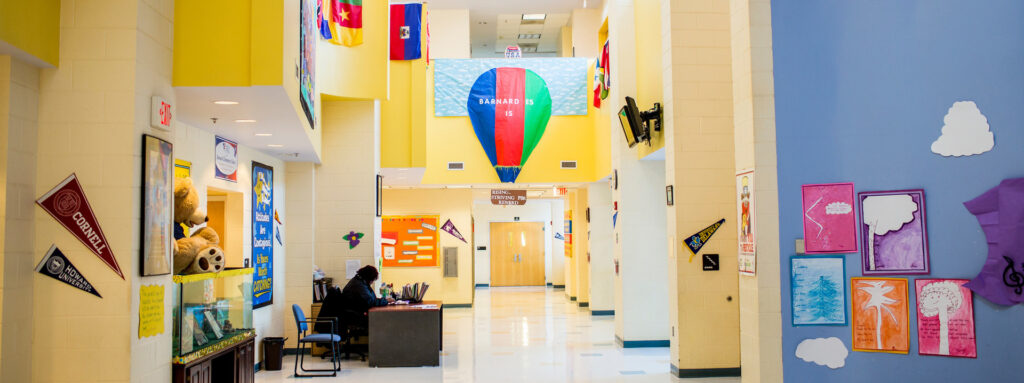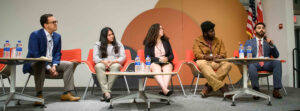[subscribe]
In 2014, the Louisiana Board of Elementary and Secondary Education launched Believe and Prepare, a set of regulations requiring all teacher preparation programs in the state to include a year-long residency supervised by an expert mentor. That same year, the state also created a system of standards, curricula, and assessments focused on helping kids graduate from high school ready to enter college or the workforce.
We sat down with Richland, Louisiana educator Beverly Smart, a teacher-mentor with 14 years of experience in the classroom, to discuss these changes.
As your state’s standards have shifted, how have your expectations of what happens in the classroom shifted?
As teachers, it’s easy for us to feel like we’re “good teachers” if our kids always succeed; if by the end of class 80 percent of students can recite back everything from the lesson. With the new standards, it doesn’t always work like that. It's not always easy, and it's not always pretty.
I’ll be the first to admit that when I have a child who comes to me reading below grade level, and I put a complex article in front of them, and they struggle, my instinct is to become mama bear, and rush in to save the day. I thought that's what a good teacher did, not let her kids fail. But after 14 years of teaching, I’ve had to come to terms with the fact that by doing all this hand-holding, I was doing them an injustice—I wasn’t letting them fail, so I wasn’t letting them learn.
If I'm making it easy for my students, they’re not going to grow. But if I put text in front of them that they have to struggle with and reread multiple times, if I ask them questions rather than giving them the answers, gradually, change will happen. Each assignment prepares them for the next. It's not an overnight process; it takes time.
I won’t say this is easy, because as teachers we love our kids. We think that part of loving them is making school easier for them. But to truly make school easier for them, we have to be patient, and let them grow over time. To me, failure isn’t negative; it’s an opportunity to learn from our mistakes.
How are the new standards different from the old ones?
Our old English language arts (ELA) standards were about learning discrete skills like “main idea” or “author’s purpose,” and we taught each of these skills separately. But now our focus is more on helping kids create meaning based on what they read and communicate that meaning. We want them to understand the greater context behind the text.
How have you worked through those shifts with your teacher residents?
When we don't know how to do something as teachers, we go with what we know, and sometimes that's the wrong thing. That's a habit that I had to break and that I help my residents to break as well.
So, we do lots of planning. We predict, what are they going to struggle with? How are we going to get them through it? What might they answer wrong, and how are we going to respond when—not if, when—they answer wrong? Those kinds of things. We do a lot of backstage practice before residents get in front of students.
For both students and teachers, failure is an opportunity. It's just an opportunity to learn, and if we have to learn from our mistakes, sometimes that's just the best way that we have to learn. An essential part of failure is safety. I let my residents know early on that they need to expect to fail on a daily basis—and that they have me by their side, watching, helping, and supporting them. So, “I didn’t do that right, that was a total mess, I need to go home and cry” becomes, “That was a total mess, what can I do to improve?”
And it’s not just about students or student teachers. That it took me all these years to realize the value of failure was itself a failure on my part. As veteran teachers, it’s so important we don’t run away from our mistakes—we have to be open, and we can’t act like we have it all figured out. That’s how we grow as professionals and do better for our kids. The most dangerous thing you can say is “we’ve always done it that way, so it must be the right way.” So now, as a teacher-mentor, I can help my residents grow from my mistakes, which is great. And, when my students and my residents see me fail, it makes them feel better about doing so, too.
We talk a lot about the power of teacher expectations in our recent report, The Opportunity Myth. Can you tell me about the process of raising your expectations for students?
There was a training we did with TNTP, alongside the residents, on fixed mindsets versus growth mindsets—the idea that kids will only ever do what you expect them to do. It forced me to take an honest look at one of my classroom practices: grouping students into “high performer” and “low performer” groups. I did this because I thought it would help the kids in my class. But after learning about the effect expectations can have on kids, I realize now it was the wrong approach.
I can’t even say it was the research that made the difference; it was taking the research back to the classroom and seeing how it played out. I had to ask myself, “Is what I am doing backed by research, or is it backed by what I think is going to work?” What I have come to realize is that the research wins. The research doesn’t lie.
How did that change your teaching?
For over a decade, when my end of the year scores came out, and some kids didn't perform as well as others I remember thinking, “Well that's just how it is, that's just the way it goes.” But now, I know my expectations for my students had everything to do with that.
So, when I got my scores last year, I found myself cheering for the children who came to me performing at a lower level and applauding their growth. I’ve seen that I don't have to get to the end of the year only celebrating those I expected to make gains.
I want to ask teachers: do you believe all kids can learn? I emphasize that word all. And if the answer is no, well, then why are you a teacher? Because if you're a teacher, you should believe every kid who walks into your room has the potential to grow and learn and succeed. It will make all the difference.
Read more about the importance of teacher expectations in The Opportunity Myth—then take the first step by requesting your own free action guide featuring tools and advice to help more students in your community have worthwhile experiences in school.





